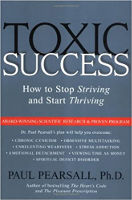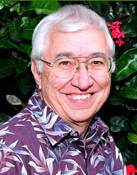Written by Paul Pearsall and Narrated by Marie T. Russell
"Fight or flight! That's the only way we cope with stress," said my professor years ago. For more than sixty years, our competitive nature has been assumed to be related to our built-in sympatho-adreno-medulary (SAM) response system. This is our automatic alarm state that pushes our body to the max so we can do something very aggressive to win over a predator or perceived source of severe stress, or to hightail it away as quickly as possible.
When we feel challenged, our sympathetic nervous system becomes activated and we become agitated. Hormones are released that signal the middle (medulla) area of the adrenal glands, which, in turn, secretes large amounts of stress hormones to help us confront or run away.
This SAM system can have a devastating effect on our body by lowering our immune system and overextending our heart and circulatory system. It is a full assault- or retreat-system, and it is at the root of our chronic competitiveness.
Other than Fight-or-Flight Mode?
Psychologist Walter Cannon conducted the classic research on the SAM-mediated fight-or-flight response. With laboratory research conducted primarily on male rats, he showed that our body reacts to stress through a sympathetic nervous system surge and associated stress-hormone release sequence. It was assumed that the fight-or-flight response was our only natural intense reaction to perceived stress, but new research by psychologist Shelly Taylor at the University of California, Los Angeles, and her colleagues suggests that learning from male rats has its serious limitations.
Taylor's research indicates that we do not always have to think of ourselves as in competition against others and the world. No matter how normal the fight-or-flight response has become, we have a choice of another, less toxic way of dealing with stress. She calls it the "tend-and-befriend response," and it is related to McClelland's RAS (relaxed affiliation syndrome).
Taylor's conclusions are based on the discovery that females...
Continue Reading at InnerSelf.com (plus audio/mp3 version of article)
Music By Caffeine Creek Band, Pixabay
Reprinted with permission of the publisher,
Inner Ocean Publishing, Inc. ©2002, 2004.
www.innerocean.com
Article Source:
Toxic Success: How to Stop Striving and Start Thriving
by Paul Pearsall, Ph.D.
 Dr. Pearsall directly challenges many of the self-help conventions, which he finds are not solutions but part of the problem. His detoxification program has helped many TSS patients to sweeten it up by changing their mindset and taking back their attention, focusing on what they need, not what they want.
Dr. Pearsall directly challenges many of the self-help conventions, which he finds are not solutions but part of the problem. His detoxification program has helped many TSS patients to sweeten it up by changing their mindset and taking back their attention, focusing on what they need, not what they want.
About the Author
 Paul Pearsall, Ph.D. (1942-2007) was a licensed clinical psychoneuroimmunologist, a specialist in the study of the healing mind. He held a Ph.D. in both clinical and educational psychology. Dr. Pearsall has published more than two hundred professional articles, written fifteen best-selling books, and has appeared on The Oprah Winfrey Show, The Monte/ Williams Show, CNN, 20/20, Dateline, and Good Morning America.
Paul Pearsall, Ph.D. (1942-2007) was a licensed clinical psychoneuroimmunologist, a specialist in the study of the healing mind. He held a Ph.D. in both clinical and educational psychology. Dr. Pearsall has published more than two hundred professional articles, written fifteen best-selling books, and has appeared on The Oprah Winfrey Show, The Monte/ Williams Show, CNN, 20/20, Dateline, and Good Morning America.
Visit his website at www.paulpearsall.com.



























